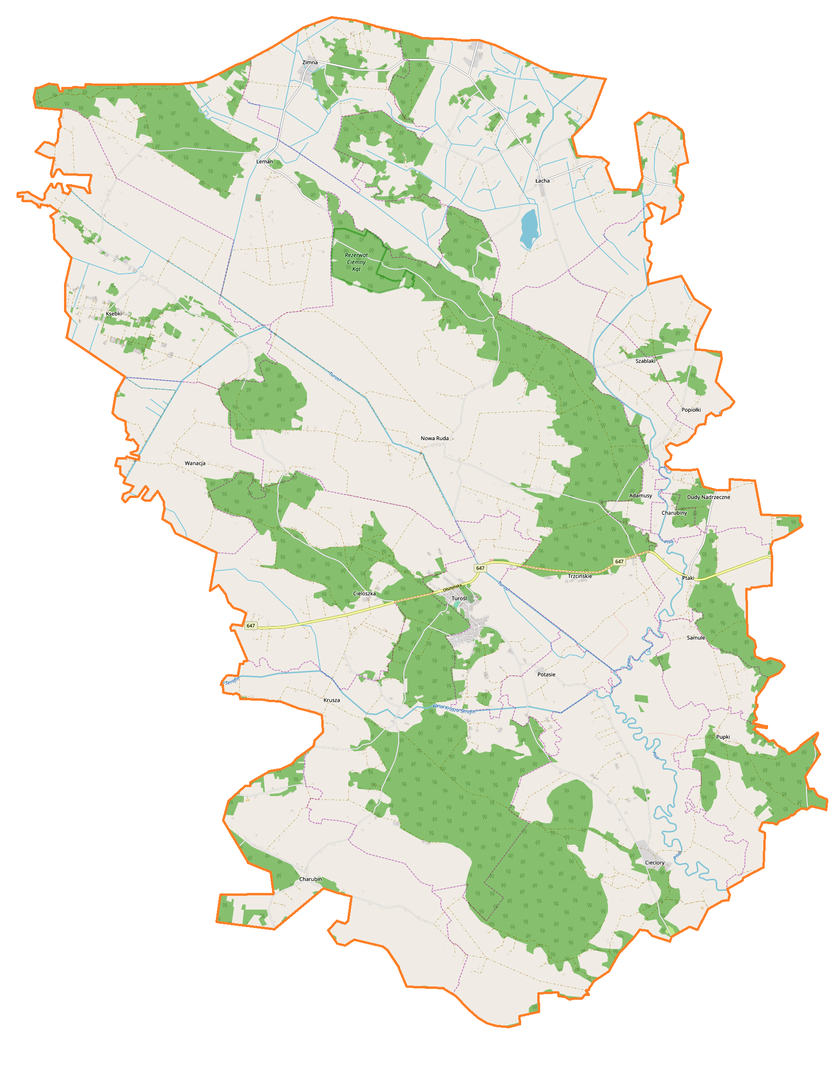Turośl
6.51

Overview
Turośl is a rural commune in the Podlaskie Voivodeship, within Kolno County, with its seat located in the village of Turośl. The commune has been administered by Mayor Piotr Niedbała since 2004, and the Chair of the Municipal Council is Sławomir Milewski. The commune's residents (5,110 people as of December 31, 2019) live in an area of approximately 198.43 km², which is predominantly agricultural land (68%) and forests (26%). The history of Turośl dates back to the mid-17th century, when settlements began to emerge on the edge of the Zielona Forest, and the village itself took shape in the 18th century as a forester's settlement on the Turoślanka River. This region was once reserved for the Mazovian princes, and its rich wildlife, including aurochs and moose, contributed to the naming of the village as Turośl. Over the centuries, the commune evolved from a forest settlement into an agricultural community, with its residents actively participating in national struggles, including the Swedish Deluge, the Northern Wars, and the January Uprising. During the interwar period, the impoverished rural population initiated protests, such as the famous 1924 Kurpie March on Kolno, reflecting the social activism of the local community. Architecturally, the commune is distinguished by historic buildings, such as the granary housing the Municipal Cultural Center, and the windmill, which now serves as a Regional Chamber with approximately 500 exhibits related to the history of the Kurpie people. These institutions play a vital role in the cultural life of the commune, preserving heritage and promoting folklore and folk art. Turośl is also located in a region rich in water resources, including the Pisa River and Lake Łacha. The commune's villages include Adamusy, Cieciory, Nowa Ruda, and Turośl, among others, and there are also settlements without formal village status, such as Pudełko. Turośl is surrounded by the communes of Kolno, Łyse, Pisz, and Zbójna, providing a favorable environment for local community cooperation and cultural exchange.
Location
2026 Wizytor | All Rights Reserved